|
About William Tyndale |
|
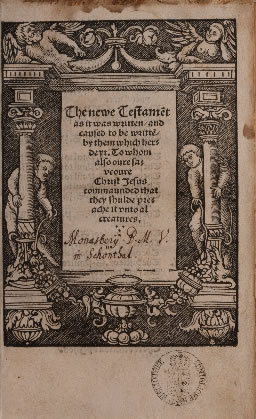
Title page, 1526 New Testament. Württembergische Landesbibliothek Stuttgart: B engl.152601 |
William Tyndale (c. 1495-1536) was born into a family of yeoman farmers on the Welsh border. He spent a dozen years at the University of Oxford, where he earned his B.A. in 1512 and his M.A. in 1515. Besides the usual studies in Latin, Tyndale studied Greek at Magdalen Hall (now Hertford College). John Foxe, his first biographer, lacks documentary evidence when he says that Tyndale also studied at Cambridge, where the influential Dutch humanist Erasmus had served as Professor of Divinity and Lecturer in Greek from 1511 to 1514. In the early 1520s Tyndale returned to his native Gloucestershire, where he was a tutor at Little Sodbury Manor, but in April 1524 he left England for the Continent after Bishop Cuthbert Tunstall refused to support his proposal for an English Bible. Tyndale’s first attempt at printing his English New Testament at Cologne in 1525 was interrupted by Catholic authorities before printers had completed the book of Matthew. Only a fragment of this work survives, but Tyndale was able to see his completed English New Testament through the press at Worms in 1526. Tyndale spent most of the following years of exile in Antwerp, where he published his translation of the Pentateuch in 1530, Jonah in 1531, a revised New Testament in 1534, and his independent works. Tyndale was arrested in May 1535 and condemned by a church court. He was strangled and his body burned outside Brussels in October 1536. Best known as the translator of the first New Testament to be printed in English, he played a formative role in shaping the English language, bending it toward a rigorous and colloquial style that survives to the present time. In addition to his translation work, Tyndale wrote a series of books that engaged some of the most debated topics of sixteenth-century Europe, including social inequity and unrest, the ideas of Martin Luther, the “great matter” of Henry VIII’s divorce from both Catherine of Aragon and the Roman church, educational reform, literacy, governmental policies, and theological controversy. He confronted in print two of the most influential writers of the time, Bishop John Fisher and Sir Thomas More, honing the English language as he crafted his arguments and responses. |
|
About The Project |
|
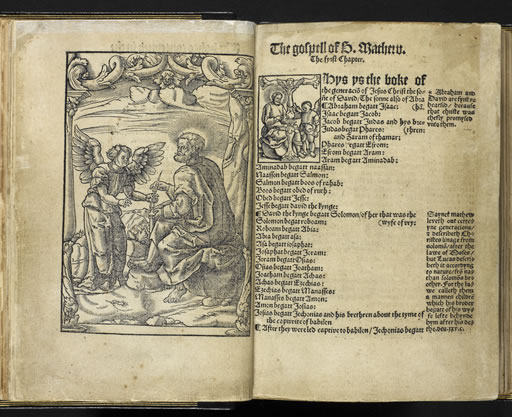
Tyndale New Testament, Cologne Fragment (1526). © British Library Board (G.12179) 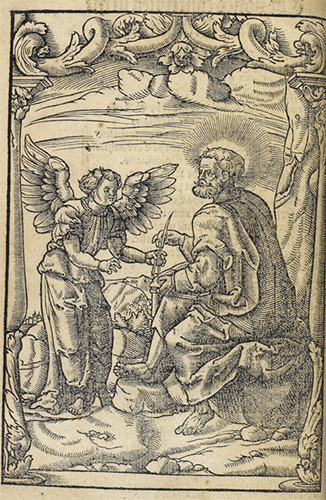 |
Today scholars are hampered by a lack of ready access to his books, which are currently available only in facsimile editions, through Early English Books Online, in the inadequately edited Parker Society editions (1848-50), or in the earlier, less sophisticated versions edited by Thomas Russell (1831). With substantial funding from the National Endowment for the Humanities, this project will replace the Parker Society volumes with reliably edited scholarly editions of all of Tyndale’s works. The need for these editions was first championed by Richard S. Sylvester when, as executive editor of the Yale Edition of the Complete Works of Thomas More (1963-97), he conceived of a parallel series of Tyndale’s Works. One volume, An Answere vnto Sir Thomas Mores Dialoge, edited by Anne M. O’Donnell, S. N. D., and Jared Wicks, S. J., was published in 2000. This NEH-funded project will result in the production of five further volumes: The Obedience of a Christen Man, The Practyse of Prelates, Expositions of 1 John and 5-7 Matthew, The Parable of the Wyked Mammon, and Biblical Prefaces, Prologues, and Accompanying Material (1526-1536). These editions will follow the standard set by the well-received Answere and will include, in addition to collated and annotated texts, substantial introductions; glossaries; indices of scripture texts, proper names, and post-scriptural authors; and general indexes. Printed volumes published by The Catholic University of America Press will accompany an open-access online edition maintained by the Institute for Advanced Technology in the Humanities at the University of Virginia. Today Tyndale’s treatment of his sources, and his intellectual and political influences, remain clouded. These badly needed critical editions will provide scholars with the tools to reassess Tyndale's importance, and to read him within the context of late medieval ecclesiastical and civic reforms, Augustinian vernacular preaching, Lutheran theology, Henrician politics, Erasmian humanism, sixteenth-century pedagogy, and more. |
|
Editors |
|
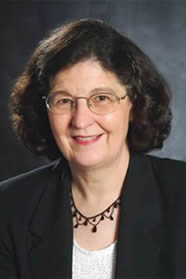 |
Susan M. Felch is Professor of English at Calvin College, Grand Rapids, Michigan, and director of the Calvin Center for Christian Scholarship. She is the Executive Editor for the Tyndale Project and has published numerous articles and chapters on sixteenth-century topics with particular attention to the intersections of social, political, gender, and religious concerns, all of which are critical to Tyndale scholarship. Her book publications include The Collected Works of Anne Vaughan Lock (RETS, 1999); Bakhtin and Religion: A Feeling for Faith (Northwestern UP, 2001) with Paul J. Contino; Elizabeth Tyrwhit’s Morning and Evening Prayers (Ashgate, 2008); Elizabeth I and Her Age, with Donald Stump (Norton, 2009); Selected Readings of Bible Stories / 圣经故事选读, with Xing Ling (Yunnan UP, 2011); Teaching and Christian Imagination (Eerdmans, 2016) with David I. Smith; and The Cambridge Companion to Literature and Religion (Cambridge UP, 2016). With Clare Costley King’oo, she is editing The Obedience of a Christen Man. |
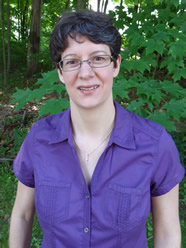 |
Clare Costley King’oo is Associate Professor and Associate Head in the Department of English at the University of Connecticut. Her research and teaching interests lie in late medieval and early modern studies, with particular emphasis on the literature and culture of the Reformation. In addition to essays published in Renaissance Quarterly, Renaissance Studies, Reformation, and the 2011 collection Psalms in the Early Modern World (Ashgate), Dr. King’oo is author of Miserere Mei: The Penitential Psalms in Late Medieval and Early Modern England (University of Notre Dame Press, 2012), which won the Conference on Christianity and Literature’s “Book of the Year” Award. She is co-editing The Obedience of a Christen Man with Susan M. Felch. |
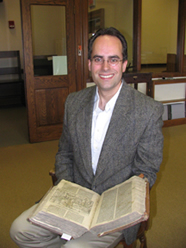 |
Mark Rankin is Professor of English at James Madison University. He is Editor of Reformation, contributing editor of Sermons at Paul’s Cross, 1521-1642 (OUP, 2017), and co-editor of Henry VIII and his Afterlives (Cambridge, 2009). His work on English Reformation literature and culture, early Tudor literature, and the early English Bible has appeared in journals including English Literary Renaissance, Erasmus Studies, the Journal of Medieval and Early Modern Studies, The Library, and Renaissance Quarterly. His co-edited collection The Elizabethan Catholic Underground: Clandestine Printing and Scribal Subversion in the English Counter-Reformation, is under contract with Brill. His other projects include an edition of John Bale's A retourne of James Cancellers raylinge boke upon his own head for the Renaissance English Text Society, and a census-in-progress of all extant institutional copies of John Foxe’s Acts and Monuments. He serves as PI for the project and is editing Practyse of Prelates. |
|
|
J. Christopher Warner, Professor of English at Le Moyne College in Syracuse, NY, has produced a critical edition and translation of Agostino Dati’s Elegantiolae (published in the 2012 volume of Humanistica Lovaniensia: The Neo-Latin Journal), and previous to that, John Bale’s Catalogue of Tudor Authors: An Annotated Translation of Records from the ‘Scriptorum illustrium maioris Brytanniae ... Catalogus’ (1557–1559) (Arizona Center for Medieval and Renaissance Studies, 2010). He is the author also of three monographs: The Making and Marketing of Tottel’s Miscellany: Songs and Sonnets in the Summer of the Martyrs’ Fires (Ashgate, 2013); The Augustinian Epic, Petrarch to Milton (Michigan, 2005); and Henry VIII’s Divorce: Literature and the Politics of the Printing Press (Boydell, 1998). He is editor of Expositions of 1 John and 5-7 Matthew. |
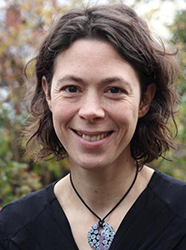 |
Cathy Shrank studied for all her degrees at the University of Cambridge. After holding lectureships at King’s College, London and the University of Aberdeen, she is now Professor of Tudor and Renaissance Literature at the University of Sheffield. She is author of Writing the Nation in Reformation England, 1530-1580 (Oxford University Press, 2004) and co-editor, with Mike Pincombe, of The Oxford Handbook of Tudor Literature, 1485-1603 (Oxford University Press, 2009). With Raphael Lyne, she co-edited Shakespeare’s Poems (Longman Annotated English Poets, 2018) and is one of the General Editors of the Collected Works of Thomas Nashe, currently in preparation for Oxford University Press, work on which has been funded by the UK’s Arts and Humanities Research Council. She is currently writing a monograph on dialogue in late medieval and early modern England, funded by a Major Leverhulme Research Fellowship. She is editing The Parable of the Wyked Mammon. |
 |
Thomas Fulton is Associate Professor of English at Rutgers University in New Brunswick, New Jersey. His research has explored the cultural intersections of literature, politics, and religion in early modern England, largely through the lens of the history of reading. His first book, Historical Milton: Manuscript, Print, and Political Culture in Revolutionary England (Massachusetts, 2010), was followed by a co-edited collection with Ann Baynes Coiro entitled Rethinking Historicism from Shakespeare to Milton (Cambridge, 2012). His work on English literature and biblical readership has appeared in several articles, and has provided the subject for two more collections of essays: The Bible and English Readers, published by the Journal of Medieval and Early Modern Studies in 2017 (winning the best special issue award for that year), and The Bible on the Shakespearean Stage: Cultures of Interpretation in Reformation England, co-edited with Kristen Poole, published by Cambridge in 2018. His most recent monograph, The Book of Books: Biblical Interpretation and Political Literature from Erasmus to Milton, is forthcoming from University of Pennsylvania Press in 2020. He is editing Biblical Prefaces, Prologues, and Accompanying Material.
|
